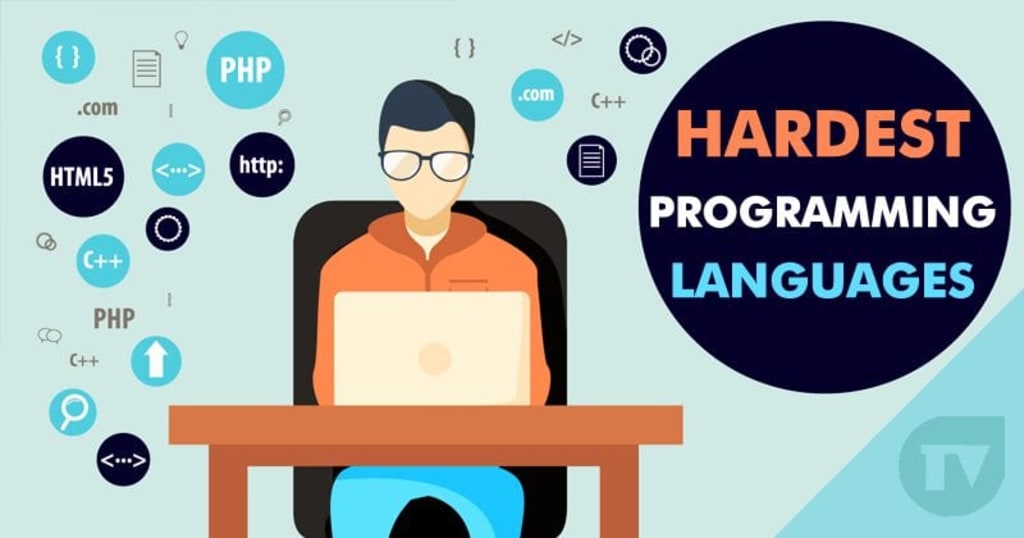Cracking the Code: The Toughest Coding Languages to Master
Hardest Programming Languages

When it comes to coding languages, there are a few that tend to be tougher to master than others. This is usually due to the fact that they are more complex, have more intricate syntax, or require a higher level of understanding in order to use them effectively. However, with a little extra effort, anyone can learn these tough coding languages and use them to their full potential.
Some of the most difficult coding languages to master include Java, C++, and Assembly. These languages can be tough to learn for a variety of reasons. For example, Java is a very verbose language, which means there is a lot of code required for even simple tasks. This can make it difficult to read and understand, especially for beginners. C++ is also a complex language, with many different features and capabilities. This can make it challenging to learn all of the different aspects and how to use them correctly. Finally, Assembly is a low-level language that requires a good understanding of computer architecture in order to use it effectively.
Despite the challenges associated with these toughest coding languages, they can still be learned with some dedication and hard work. Anyone who is willing to put in the time and effort can become proficient in these difficult languages and use them to create powerful programs.
The Most Difficult Coding Languages
Coding is a process of translating human instructions into a language a machine can understand. It’s not always easy, and some languages are tougher to master than others. Here are some of the most difficult coding languages:
1. Assembly Language
Assembly language is very low-level, meaning it deals directly with hardware instructions. This makes it difficult to learn and understand, especially for beginners. It’s also not very portable, so code written in one type of assembly language may not work on another type of machine.
2. C++
C++ is a complex programming language that takes time to master. It has a steep learning curve and requires a lot of practice to become proficient. Beginners often find it confusing and frustrating, as there are many rules and concepts to learn. However, experienced programmers appreciate its power and flexibility.
3. Java
Java is another complex programming language with a large number of rules and concepts. It can be difficult to keep track of everything, especially for beginners. Additionally, Java code can be slow to run compared to other languages. However, its popularity means that there is a wealth of information and resources available online.
4. Perl
Perl is known for being particularly versatile and powerful, but this also makes it one of the more difficult languages to learn. It has many features that can be confusing for beginners, such as strange syntax and odd variable names. Additionally, Perl code can be difficult to read and maintain.
5. Haskell
Haskell is a functional programming language that can be tricky to learn. It has a different approach to coding, which can make it difficult to understand for those used to more traditional languages. Additionally, there are various complex concepts that must be mastered in order to use Haskell effectively.
Why Are These Languages Considered Difficult?
There are a variety of reasons why these languages are considered difficult. For one, they can be quite technical and require a lot of attention to detail. Additionally, they often have steep learning curves, which can make them challenging for beginners. Finally, they can be difficult to read and write, making them tricky to use for those who are not familiar with them.
Tips and Tricks for Learning Harder Coding Languages
There are a few things you can do to make learning harder coding languages easier. First, find resources that are geared specifically towards helping people learn the language you're interested in. Second, break the language down into manageable pieces and focus on one piece at a time. Third, practice, practice, practice! Finally, don't be afraid to ask for help when you're stuck.
Now let's take a look at some specific tips and tricks for learning harder coding languages:
1. Make use of online resources
There are plenty of websites and forums out there that can help you learn harder coding languages. Do some research and find ones that look promising. Additionally, many coding languages have official documentation that can be very helpful in understanding the language's syntax and semantics.
2. Don't try to learn everything at once
Trying to learn a new coding language all at once is likely to overwhelm you and lead to frustration. Instead, break the language down into smaller pieces and focus on one piece at a time. For example, start by learning how to declare variables; then move on to conditionals; then loops; etc. Once you've mastered the basics of the language, you can start putting everything together and writing more complex programs.
3 . Practice, practice, practice!
One of the best ways to learn any skill is through practice. The same is true for learning how to code in a new language. Find some problems that you can solve with the language and practice writing code to solve them. This will help reinforce the concepts you've learned and give you a better understanding of the language as whole.
4. Collaborate with others
Find other people who are also learning the language and collaborate on projects or discuss difficult topics. Having someone else to help you understand tricky concepts can be invaluable when learning something new. Additionally, working with others on coding projects is a great way to get practice in coding while also helping others learn the language.
5. Ask for help when needed
Don't hesitate to ask for help if you're stuck on something or don't understand a concept. There are plenty of people out there willing to lend a hand and it's always better to get assistance before getting lost in frustration or giving up altogether.
Resources for Further Exploration
There are a variety of resources available for those looking to further explore the world of coding languages. For starters, the website Coding Bootcamps offers an extensive list of both online and offline resources, including bootcamps, courses, and books.
For more specific guidance, The Muse has put together a list of the best resources for learning popular coding languages like Java and Python. And if you're looking for a more comprehensive guide to all things code, check out Code Academy's guide to the best coding resources.
Conclusion
Learning to code can be a daunting task, but with the right language and enough time, anyone can do it. We hope that this article has provided you with some insight into the coding languages that are considered to be the toughest to master. With hard work and dedication, any of these languages can become your new best friend in coding. So why not start today? Pick one language and get cracking!
About the Creator
Muhammad Adil Sardar
MUHAMMAD Adil Sardar is a digital marketing expert. He has helped several brands grow from nothing to a successful name in the past few years. He believes smart work and business values go a long way when it comes to success.






Comments
There are no comments for this story
Be the first to respond and start the conversation.